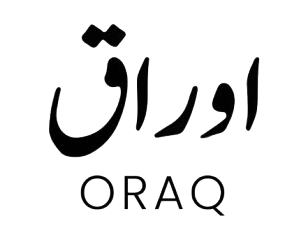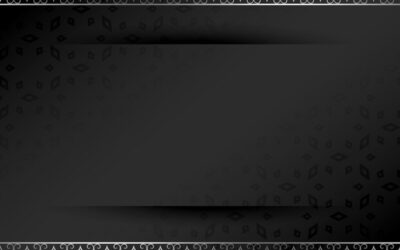Don't French-Pakistanis speak Urdu?
Some time ago, I agreed to attend a gathering of Pakistani immigrants. Almost all the guests were speaking in French, except for three participants who were speaking in Urdu and English. For them, everyone tried to speak Urdu. When I spoke to them towards the end, one of the brothers expressed his regret that when Italians meet, they adopt Italian, while Arabs choose Arabic. Why do Pakistanis shy away from speaking their own language?
Some time ago, I had the opportunity to attend a Pakistani gathering. Most of the participants spoke French except for three guests who spoke Urdu and English. To accommodate them, everyone tried to speak Urdu. Towards the end, I had the opportunity to chat with them, and one of them shared his feeling: When Italians meet together, they speak Italian, Arabs speak Arabic, why do Pakistanis avoid speaking Urdu?
Some reasons are obvious, such as the number of Pakistanis in France is small, not everyone is in contact with other Pakistanis, so Urdu is not worked on as much as it should be. We can assume that Pakistani parents want their children to speak French better than them, so they themselves address them in the local language. By speaking French all the time, siblings also speak the same language to each other. In such ways, the connection with Urdu language is constantly weakening. And when we return to Urdu, the cracks are so deep that there is no other option but embarrassment.
Some reasons are obvious: the Pakistani community in France is small and scattered, so it’s not possible to practice Urdu as much as necessary. Presumably, parents are trying to get their children to speak the local language better and therefore adopt it at home. As a result, even within the family circle, there is no longer the opportunity to practice their mother tongue. As a result, ties with Urdu are dwindling, and by the time you realize it, it’s often too late.
Young people, regardless of their ethnicity, want to be with their friends. They like it when their ethnicity is not visible in their features and face. If someone thinks they are Arab, then Bismillah, if someone thinks they are French, then great.
Young people, regardless of race, want to belong to a group and erase their particularities in order to be accepted. Young children of immigrants, therefore, prefer not to have their origins reflected in their appearance, and even more so if their appearance can resemble European descent.
Value your uniqueness, the value of losing your language unnecessarily has been understood for a long time. But now what will happen when the birds have left the field? When you go back to Pakistan and are unable to communicate with your family, you are overwhelmed by helplessness, shame and anger, and relationships are shattered. On the other hand, some parents, in an attempt to keep this asset alive, get their children married in Pakistan. So that the connection with the land and language can be maintained from generation to generation.
We can never tell them enough: your uniqueness is precious. Losing a language for no reason is a high price to pay for acceptance. When these young people struggle to connect with their families in Pakistan, dialogue breaks down and ties dry up. On the other hand, some parents, in order to preserve this treasure, will convince their children to marry in Pakistan so that the next generation can continue to speak Urdu.
I tried to defend myself: “When we are engaged in a fluent conversation, when we cannot remember the appropriate Urdu word, we say whatever comes to mind.” In which English is not the only one who has the privilege of blending. Punjabi, the local language, is also leading in this. In response, my compatriot said that he is acquainted with a gentleman who works in the embassy. And when he speaks, he gradually, by choosing the appropriate words, develops his point. And this is a sign of intelligent people. This is also present in Islam, when we say that first think and then speak. Listening to these people is a great pleasure.
“We speak so quickly. I tried to save face, we say whatever comes to mind.” The result is a clever mix of Urdish interspersed with English, Punjabi, Sindhi, Patohari, Pashto, Balochi, Siraiki, and other regional languages. To which my compatriot replied that he knew a gentleman who works at the embassy, who, when he speaks, chooses his words without regard for the time required for construction. It is a distinction of the wise to speak little, but when they do speak, each word has its place and weight. This philosophy is echoed in Islam as well, when one is asked to turn one’s tongue 10 times in one’s mouth before speaking. Therefore, hearing this type of speech is an absolute delicacy for the ears and the mind.
It is more depressing that we cannot speak any pure, pure language. Your stability in a language affects your thinking. The maturity in your language helps you express your personality correctly. When, despite speaking French, we switch to a local idiom, the fun of all the hard work becomes bitter. Not only do the French not confine you to the cage of a copycat, but the Pakistanis themselves, who are your partners in this copying, will not put you on the same level as a pure speaker. This last aspect can ruin your years of hard work. Your French identity is hurt. The identity that you had buried long ago, shines on your face again. A separate article can be written on this topic. Wouldn’t it be better if we accept our true identity with all our hearts? I will summarize my point like this.
However, as a Franco-Pakistani, one can lament not mastering any of the languages. Because mastering a language has repercussions on our way of thinking. Our personality is best expressed through that language. Every time we butcher an idiom, French syntax, in a meeting, we can be sure of falling in the esteem of our French colleagues but also of our mimicry partners, the Franco-Pakistanis. This can ruin your efforts for years. Your French identity is wounded. This Pakistani identity that you thought you had buried for years instead resurfaces. We could develop this subject in a separate article. I will end with this question: is it perhaps not better to better redistribute one’s identity and better embrace it?
This is about Urdu abroad. In fact, even on the soil of Pakistan, good Urdu language education is not available.
This is the observation of the Pakistani diaspora, but in Pakistan itself the level of Urdu teaching is not brilliant.
A brother present at the ceremony expressed that it is our responsibility to give importance to our language. When you respect your parents, people serve them without seeing them. When an entire nation feels inferior about its language, adulteration will increase, and the language will disappear from the face of the earth. It is already suffering from inferiority complex.
One participant emphasized that the responsibility for preserving a language lies with its speakers. Because if one doesn’t appreciate one’s own strengths, there’s no point hoping others will. If the entire nation suffers from an inferiority complex, hybridization with English will only be exacerbated, and one might question the survival of the language, which is already not in a very good state.
This idea came to my mind and stuck in my heart that an Urdu madrasa should be opened immediately. But the matter became more complicated when I decided that from today onwards I will write only in Urdu, then many other problems came to the fore. I do not like Urdu in Naskh font at all. And Nastaliq is not yet available in Android phones. And due to the inability to write Urdu correctly, in this modern and developed time, Pakistanis living in the country and abroad are forced to turn their backs on Urdu.
This problem affected me so much that I wanted to open an Urdu school. But the problem goes even deeper. To begin with, I decided that I would send all my messages in Urdu. To do this, I had to activate the Urdu keyboard, accept that I would type very slowly, and also accept that the font would be Nusukh. Except that this font is absolutely horrible for Urdu. It makes it look like Arabic and loses the aesthetics that I’m used to finding in books and newspapers. The Nastaleeq font isn’t available on Android. So a whole group of Urdu speakers are abandoning transcription or romanizing Urdu because it presents such difficulties. I find it paradoxical that in 2021 we are still faced with a technological blockage to writing a language. You can send rockets into space but not write Urdu properly? It’s beyond me.
I was unaware of how important beauty is to the Urdu language. That it is acceptable to lose an entire language at the cost of not compromising this beauty. There is a very artistic thought that has held the entire country hostage.
I hadn’t realized how dear the aesthetics of Urdu are to its readers. Because of the absence of this beauty of writing, I was ready to leave it aside rather than compromise its writing. This way of thinking is very artistic and handicaps an entire country.
In our gathering, this language was a welcome change. But the lack of development of the national language in Pakistan is creating a gap between Urdu medium and English medium, which is considerably more complex and serious.
At our meeting, there was an opportunity to connect in other languages. But this lack of progress of the Urdu language in Pakistan created a divide between English-speaking schools and Urdu-speaking schools. The consequences of these divides are even more dangerous.




0 Comments